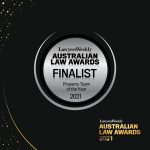What do you do if you are responsible for a charitable trust and the objects are out of date, or you can no longer fulfil the terms?
There is a solution – a cy-pres order.
The French term ‘cy-pres’ means ‘as near as possible’. Under the Trusts Act, the Supreme Court of Queensland has the power to make orders to vary the provisions of a charitable trust where the original purposes of the trust:
- have been fulfilled;
- can no longer be carried out; or
- cannot be carried out according to the directions given and in the spirit of the trust.
It is in these circumstances that a cy-pres order from the Supreme Court will be necessary.
What is a charitable trust?
A charitable trust under the Trusts Act is any property held in trust for a charitable purpose.
Why would a cy-pres order be sought?
Over time, circumstances may change and the original purposes of a trust may no longer provide a suitable and effective method of using the property available by virtue of the trust having regard to the spirit of it. It may be necessary to alter the provisions of the charitable trust.
Some examples of why a cy-pres order may be required:
- a childhood disease has been eradicated in Australia, such as polio;
- as a society, persons that are differently abled are no longer automatically institutionalised;
- the economics of the activity make it unviable in its current form; or
- there are insufficient volunteers able to operate the trust.
Recent cases
Multi-denominational church case
The property in question was a multi-denominational church in a regional location that was used by a number of different denominations since the late 1800s.
Due to the distance and difficulty in travelling to the closest major centre, the local community utilised the church until the community was able to travel to larger nearby towns in cars. In addition, as the town grew, some denominations established their own churches in the town. The church continued to be maintained by one denomination who paid for the upkeep and used it for services specific to its denomination. The church was also used for general purposes by the wider community.
The original objects of the trust could no longer be carried out as it was not practicable or commercially viable to do so. The Supreme Court made a cy-pres order transferring the ownership of the property to the one denomination who would continue to maintain it and finance the upkeep of it.
Thynne + Macartney successfully obtained the orders for the applicant in this matter.
Charity for disabled children case
In this case, the charity was providing services specifically for disabled children.
The charity had bequeathed to it a property under a will and after many years that property was restrictive and no longer suitable for the disabled children staying there.
Alternative properties were then purchased by the charity following a cy-pres order granted by the Court.
After approximately twenty years, the two purchased properties no longer met the needs of the families with disabled children.The Supreme Court again granted an order so the two properties could be sold and the charity could purchase another more suitable property with the proceeds that would meet the needs of the disabled children and their families it would be used to accommodate.
Thynne + Macartney was again successful in obtaining the cy-pres orders for the applicant in this matter.
Educational facility and church case
In this case, given the changing needs of the church it wished to realign the boundaries of the property.
The scheme proposed to the Court was that the church would have the use of certain parts of the land with a building, and an educational facility would have the use of the balance of the land.
As the original purposes had ceased to provide a suitable and effective method of using the property available, the cy-pres scheme proposed a ‘practical and effective’ means of allowing for the continued operation of the trust while maintaining the spirit of it.
Thynne + Macartney was also successful in obtaining the cy-pres orders from the Supreme Court sought by the applicant in this case.
What are the factors that the Court considers?
These cy-pres applications are complex, and the orders are not easily made by the Court. They also require notice to be given to the Attorney-General, who will often have a representative appear at the hearing of the application.
The Court will consider factors such as:
- how closely the new purpose of the trust is to the original objects of the trust;
- whether the scheme suggested is conforming to the ‘spirit of the trust’; and
- if the proposed scheme is a ‘practical and effective’ means of allowing for the continued operation of the trust.
Thynne + Macartney’s experts have assisted charities to successfully obtain cy-pres orders in each of these matters. To find out if your charitable trust might have grounds for applying for a cy-pres order and the likelihood of success, please contact Aaron Webb.
Authors: Sandra Camilleri (former Senior Associate) and Aaron Webb.





